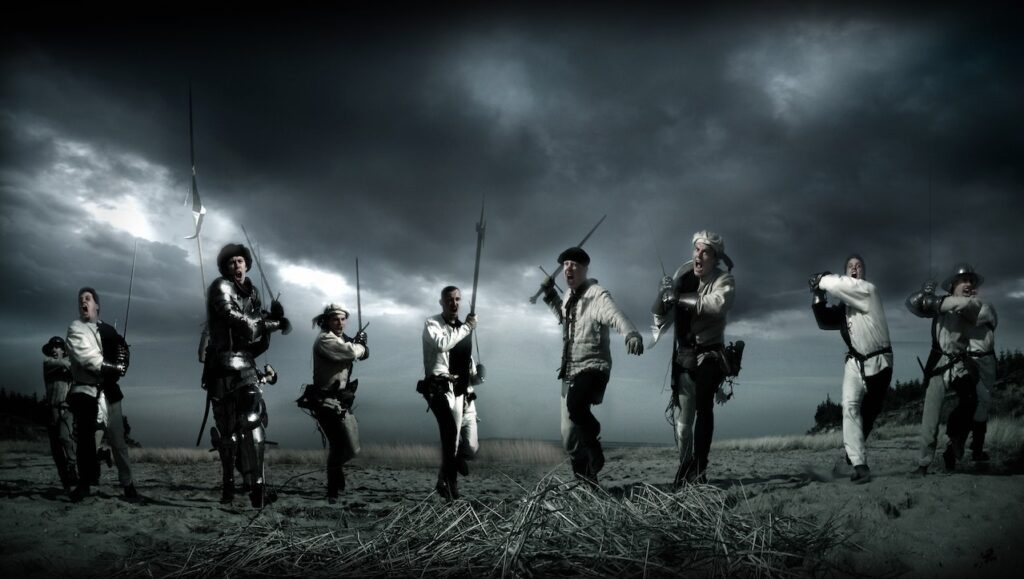
Lying is specific virtue that only humans and perhaps some other apes have. I am using the word ‘perhaps’ here because it is not crystal clear if some apes also have the ability to produce lies or deceive their fellow apes in order to get what they want.
Indeed, scientists studied the behaviors of apes for a longer period of time and noticed that they could develop the ability to lie and deceive in order to get food or to mate.
The team analyzed behavioural patterns of 24 different primate species and found deceptive behaviour is more common in species that co-operate more. That’s interesting and very much connected to us – homo sapiens – as we are cooperative by nature.
Based on that, scientists hypothesized that our ultimate ability to lie to each other probably evolved because of our cooperative nature.
Animal Kingdom

There are more very interesting anecdotal examples in the animal kingdom. It has been found that male chimpanzees are especially virtuous in lying and deceiving in order to get away with sex that is forbidden by the socially powerful. As we know, there is a hierarchy structure in the ape world, and the alpha male gets the most sexual activity, and he can choose partners as he wishes. Similar to the human world, isn’t it? However, it seems like females also have comparable capabilities.
In his book Chimpanzee Politics: Power and Sex among Apes, primatologist Frans De Waal writes about an adolescent female ape (called Orr) at Arnhem Zoo who would scream during intercourse. However, she didn’t only have sex with the alpha male but also with younger males. Since she was screaming, the alpha male heard that and almost always interrupted them. Eventually, after several interruptions, Orr learned to suppress her screams when copulating with lower-ranking males, but she still continued her screams while having sex with the alpha. This again sounds awfully similar to human life and behavioural patterns related to sexual intercourse and relationships.
On the other hand, competition also plays a big role in the desire to deceive someone as it seems. Namely, Frans wanted to observe if chimpanzees will try to deceive one another during a simple experiment. So, he used a box of grapefruits to demonstrate the point that perhaps chimpanzees will try to deceive one another. While they were locked in their sleeping rooms, he brought the box out to the public area and buried the grapefruit in the sand. He only left a small portion of grapefruit still uncovered. He wanted to test chimpanzees’ behaviour and potential deception if one of them in the group noticed that buried grapefruit and others didn’t. The other day Frans and other researchers placed the empty box in the public area, and as expected, all chimpanzees rushed for their fruits, as they are used to finding fruits in those kinds of boxes. This time, unfortunately, they didn’t find anything. However, one young male, as it seems, did notice buried fruit, but he didn’t want to “tell” anyone else by digging the fruits so everyone could see. He instead slowly dug up the fruits and ate them peacefully when no one was looking.
That’s deceiving 101.
And so, I digress too much about monkeys; however, I think it is an important prelude to understanding why humans lie so that we could potentially imagine what would happen if we suddenly lost that ability. As we learned, chimpanzees often deceive each other and their human caretakers; that much is clear, but we don’t know if they are aware that it is morally wrong as we are when we’re deceiving someone.
Humans and Lying

We humans – we are aware. Well, for the most part. That is if we exclude humans with a mental disorder in which the person habitually or compulsively lies. Yes, that is a thing, and it is called mythomania or pathological lying. Nevertheless, a big majority of people do not have that disorder, yet we lie all the time. According to a study conducted by University of Massachusetts’s psychologist Robert S. Feldman and published in the Journal of Basic and Applied Social Psychology, most people lie in everyday conversation when they are trying to seem likable and knowledgeable. The study, published in the journal’s June issue, found that sixty percent of people lied at least once during a short (5-15 minute) conversation and told an average of two to three lies. The study additionally found that lies told by men and women differ in content, though not much in quantity. Feldman mentioned how the results indicated that men do not lie more than women or vice versa, but that men and women actually lie in different ways and because of different triggers. “Women were more likely to lie to make the person they were talking to feel good, while men lied most often to make themselves look better,” Feldman stated.
Lying and Hitler

Additional studies suggest that ‘like strategists,’ we gauge the field and calculate if saying something will be of benefit before making a decision. In one well-known experiment, conducted in the mid-1980s by developmental psychologist Michael Lewis, children were asked to NOT peek at a toy that was left alone in a room with them. They were then examined about whether their curiosity had led to action. While most kids did look at the toy, a large number of children continued to lie about it. A similar experiment was conducted with children and cakes. They lied again about their actions. That clearly shows that we’re born with the ability to lie. Now, while most lies are harmless and we sometimes tell them almost unconsciously, there are also lies people are making that have an impact on a grand scale. BIG LIE is an actual term defined as a propaganda technique used for political purposes. The expression (German: große Lüge) was created by Adolf Hitler, when he dictated his 1925 book Mein Kampf (which by the way means My Struggle), about the use of a lie so “colossal” that no one would believe that someone “could have the impudence to distort the truth so infamously.” Hitler also believed the technique of lying was used by Jews to blame Germany in World War I. In Mein Kampf, he “famously” stated:
“If you tell a big enough lie and tell it frequently enough, it will be believed.”
“The great masses of the people will more easily fall victims to a great lie than to a small one.”
Now, Hitler is not the only one who used big lies for enormous criminal purposes that affected humanity greatly in a negative way. There are thousands of examples of individuals but also groups of people or organizations. For example, the big economic crisis of 2008 probably wouldn’t happen if big bankers didn’t lie bluntly to citizens (see more about money in this post). Actually, almost all big crises in the world happened because people, organizations, or whole nations lied to other people, organizations, or nations. Lies are perhaps the biggest contributor to all evil in the world, yet humans probably wouldn’t develop as they did without this ability. Historian and author Yuval Noah Harari extensively describes this in his book Sapiens: A Brief History of Humankind. He explained how Homo sapiens’ ability to create myths and fictions (and lies) is the very thing that has enabled us to create communities. And without communities, we wouldn’t become what we are today – the most successful species on the Earth (for now). Just imagine if we were all alone by ourselves, without communities. We wouldn’t build or invent much. And what keeps us in communities is a belief system that is based on fiction, a.k.a. lie. I wouldn’t want to offend anyone with the following statement as I respect all religions and beliefs, but we can all probably agree that religious stories are pure fiction; nevertheless, without belief in those stories or their end goal, it would be hard to keep people together. This is, of course, only one example but nevertheless an example on a big scale. A smaller example would be when you tell your first girlfriend or boyfriend that you will be together forever. That is clearly a lie (in most cases), but for sure, that lie keeps you together.
So obviously, lies are both good and bad for society, but it seems we couldn’t live without them. Or could we? Let’s examine an imaginary society where the whole population simply cannot lie. They don’t even know what the word lie means. The world without lies would be vastly different from the one we know – that much is understood. Starting from examples of criminal deeds both on individual and community levels. Would those deeds still happen? Yes, for sure but on a much lower level. Namely, currently, more than 400,000 homicides worldwide happen each year. Globally less than 1% of deaths are from homicide, but in some countries, it is as high as 10%. Without the ability to lie, those numbers would go down greatly. Because when someone kills somebody, the killer is hoping he or she will get away with it by not telling the truth. If the killer doesn’t have the ability to lie, he would probably tell someone immediately that he committed homicide. This would lead to arrest and whole life in prison. Not a great situation to be, is it? Some people would still commit homicide but mostly when they are completely out of their minds.
Lying and Society

But what about lies and human relationships as such? By that, I mean close friends, family, and love relationships. Well, those relationships wouldn’t function as they do today. Not even close. People are telling lies constantly, some bigger and some really small ones. As mentioned previously, the University of Massachusetts study found that 60% of people can’t go ten minutes without lying. Nevertheless, telling lies is an important part and, in many cases, a benign part of each relationship. Knowing that, it can be easily understood that many relationships couldn’t work without lies. Some bigger lies, like adultery, would destroy many love relationships immediately. Because imaginary John would come home after having sex with his imaginary friend Julia and immediately tell his wife Susan what happened today. And probably every possible detail because Susan would be furious and curious. So, Susan and John would probably break up soon after. Ok, adultery may be a big deal, but couples would also fight about many smaller things if they couldn’t lie. John would wake up one day and say to Susan that she is fat or vice versa. Anyhow, there could be thousands of such examples. So, lies would for sure negatively impact some love relationships.
The same goes for friendships. Well, at least for the majority of friendships. Everybody is aware of saying: ‘You can tell everything to your true friends.” While this quote is nice to say in a sentence to your friend after a couple of beers, it is not true, as, in the overwhelming majority of friendships, there are still lies. So, without lies, there would be a great disturbance among friends around the world. One could conclude that without lies, relationships would not exist at all. Or at least not in this shape or form as we know them today.
I am assuming all this based on parameters of current society and homo sapiens, which did develop with the ability to lie and then taking the hypothesis of removing that ability. However, we became what we are through hundreds of thousands of years of evolution. An evolution that included the ability to lie. So, how would we develop if we hadn’t had the ability to lie from the beginning? Well, in that case, I think relationships, and everything else for that matter, would function completely different than what I described in previous pages. If people evolved without lies and still don’t have that capability, then perhaps they would be good and sincere in their pure essence. Then maybe there wouldn’t be any nasty and mean activities in any relationship because people would have known that they couldn’t get away with it in the first place. It is interesting to hypothesize if homo sapiens would even exist today without lies. Maybe we would self-destruct as a species. Maybe we would miss all the development and still be in the stone age.
I mean, many developments through human history can be attributed to our capability to lie or, even more so, our ability to imagine something which is not true. Those dreamers who have great ideas and inventions, in most cases, cannot come through if they can’t lie, even just a little bit. How would someone sell the idea of electricity, cars, planes, or mobile phones without at least a small amount of lie at the beginning of the idea?
Products and inventions need investment, belief, and trust from other people to see the daylight, and almost always, the inventor or seller needs to evangelize their potential product in a way to represent (something) as being larger, better, or more efficient than it really is. This is, by definition, an exaggeration or some form of lie. People couldn’t exaggerate if they didn’t have the capability to lie. Therefore, one can conclude that capability of lying is the main factor in human development; hence, without lying, we would still probably be an average animal with standard (and natural) desires and needs.
Perhaps without lies, we would still live like early homo sapiens 100 000 years ago. We will never know this, but potentially we’ll see the world without lies in the near future with the invention of different brain scanners and chips implanted in our heads. Scientists are working on that in one way or another. It wouldn’t be impossible to have humans walking on Earth in, say, 2050, who could read the mind of other humans, thus basically nullifying the lying ability of the human race. Whenever and however this technology develops, it has to be introduced to humans slowly and gradually since it diminishes one of the main postulates of our evolution and our current society – our ability to lie and deceive.
Note: If you’re interested in similar articles, on topic of “What would world look like”, you can check:



























